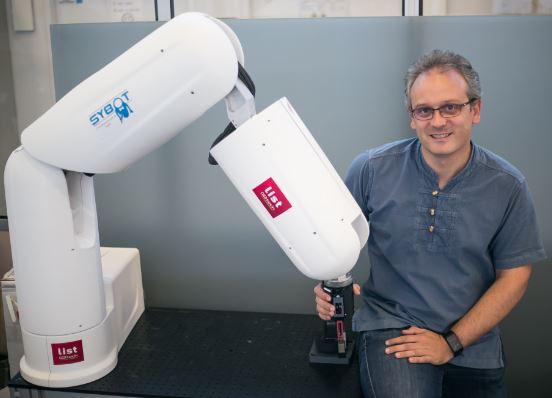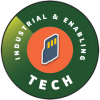Isybot
-
0 comments

A new multi-purpose, force-sensitive, rather flexible and strong arm which can be used in many situations and environments. It uses new versatile electrical actuators working with a screw and a cable to produce linear amplification and transmission of the effort to the articulation. Its outstanding transparency paired with strength allows it to break through different industries. Developed with EU support provided to the ROMANS project, it offers possiblities as a really safe collaborative robot or as a slave arm to operate remotely and efficiently in dangerous environments.
About the Innovator
The CEA is a major public research organization involved in the development of energy, defence and technologies. CEA LIST hosts our robotics laboratory is historically grounded in pioneering force feedback teleoperation for the nuclear industry and is currently deeply involved developing collaborative robotics for the industry and exoskeletons. Our activity is shared between mechanics, control and software. We own many basic patents covering architecture, actuators, sensors and control methods. Isybot is a commercial spin-off of this laboratory.
/futurium/en/file/isybotjpgisybot.jpg

What is the innovation
We have developed a torque controlled, transparent slave manipulator usable as a collaborative robot for general industry as well as a slave arm for teleoperation in the nuclear industry. Its distinctive actuators use ball-screw and cable instead of gears, lead to a very low friction and inertia (high transparency) without requiring torque sensor. This reduces cost, increases safety (especially in terms of collision) and provides reliable behaviour without requiring re-calibration.
Out of the lab – Into the Market
We have founded Isybot, a spin-off of the laboratory, in order to produce the arm and bring it to market. We are expecting to capitalize on its generic potential to address the needs of production, agro-industry as well as teleoperation in hostile environments such as 3D printing machines, asbestos/nuclear decontamination.
Benefits of participation in the Framework Programme
Participation in the Framework Programme allowed our unique technology to emerge following a continuous effort of development, that capitalised on our scientific knowledge of friction in mechanisms and experience in realizing prototypes at a higher TRL level than other laboratories. Such collaboration in the EU-funded ROMANS project has allowed the research team to advance towards delivery of the project's objectives.

